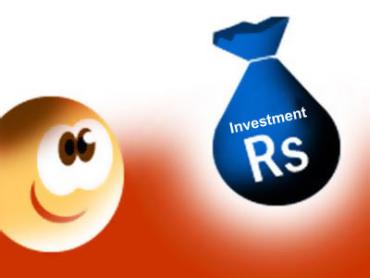
What vitriolic reactions to my previous article on investing in the stock markets for the long term! Anything but this that was not what I was expecting. If anything, I was attempting to create awareness about long-term investments. But the reactions have surely given me a reason and a subject for this article.
First let's learn to calculate compounded annual growth rate, CAGR
As per my limited knowledge, CAGR stands for compounded annualised growth rate. We have learnt the formula for compound interest in Class VIII, if I am not wrong.
Amount = Principal * (1 + Rate of Interest)^n
Amount/ Principal = (1 + Rate of Interest)^n
(Amount/ Principal)^1/n = 1 + Rate of Interest
((Amount/ Principal)^ 1/n) -1 = Rate of Interest
Now if we solve for 'rate of interest' substituting the values given below:
Principal = 1,000 (Initial value of Nifty on 3-Nov-95)
Amount = 5,000 (Approximate value of Nifty as of now)
n = 14 (Approximate years from November 1995 till now)
We get rate of interest = 12.18 per cent. I fail to understand how it can be 34 per cent as mentioned by our reader Kishin Asnani in the message board below the article: Don't wait for Sensex to hit 21000. Buy stocks NOW!
Another way to calculate this is using the RATE function in MS Excel.
If we type =RATE (14,0,-1000,5000) in a cell, still the answer as calculated by MS Excel is 12.18 per cent. So look at it any which ways, 34 per cent is slightly wrong I guess!
The author is a professional financial trainer and is faculty at Nagpur-based Money Bee Institute Private Limited. This article is for information purposes only. Please do not make investment decisions based upon this article.

Good nexus between rediff.com and stock broker wrote our reader Avijit Raha on the message board below Ashutosh's previous article...
Do not take him seriously wrote V SR...
Shame on you rediff wrote Suppandi...
As a standard disclaimer, I do not own a broking terminal. Had I owned one, I would have never suggested 15 to 20 years as investment horizon on the contrary I would have promoted day trading or short-term buying and selling to increase my trading volumes. How can there be a nexus when I have no vested interest?
Readers are free to visit our office and/ or check this with BSE, NSE, SEBI, RBI, income tax authorities, Ministry of Finance, Registrar of Companies (RoC) or any other regulator.
If there is any vested interest, then it is that I feel, that we, as typical middle class Indians, all of us, should come to the stock market and take benefit of it and make a lot of money. We can and should start with Rs 500 SIP and that too, I reiterate, for a period of more than 15 years.
Why am I interested in everybody making money? Let's keep that for some other article. But in a nutshell, if the distance between haves and have-nots increases, then it will lead to an uprising (French Revolution is a case in point, if I am not wrong).
Had I been a predictor of markets, I would have never shared my success secret since I can't (and as far as I know, no one can do so consistently), the best way I said is to remain invested for as long a time as possible. What's so incorrect in this?

Fine, don't take me seriously but please tell me is there anything fundamentally and horribly wrong in saying that we should invest for 15 years or more?
Please be generous enough to elaborate what was so misleading in the article that rediff should be ashamed of. I will apologise to one and all publicly through the next article, and attempt to make amends in future articles, but please tell us what was wrong about the following points made in the previous article:
1. Statistics about demat accounts, inflation and AUM of mutual funds
2. Invest for a horizon of 15 to 20 years and more
3. People entered at 21K and exited at 8K this is not the way to make money in the markets
4. How FIIs lose money in the Forex markets when the US dollar appreciates
5. Ownership of many good companies is largely with non-Indians, so Indians should buy shares of good companies and remain invested for the next two decades
6. We should have faith in our regulators
7. Foreigners had written us off and Indians came back in style by way of Green Revolution.
If anything, I am convinced that what we attempted to convey in the previous article did not have any ulterior motives, whatsoever, and genuinely wish that all Indians should make a lot of money; legitimately, legally, honestly and by taking as little risk as possible. But the fact is that (as seen by the statistics given in the previous article), most of us have turned our backs to the asset class which can deliver the maximum return, and very few of those who are present in this asset class are adopting the time tested methodology of buy and hold.
Not for once am I suggesting that I have mastered the market, but yes, what I still feel is that there is no point in investing for periods shorter than 10 years and there is no other asset class, as liquid and hassle free as equities (more so by way of SIP in mutual funds), which has given 12 per cent CAGR over the past 14 years.
Please give your honest and hard-hitting comments. We wish to make our website as investor friendly as possible.